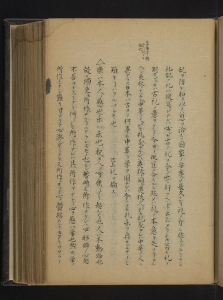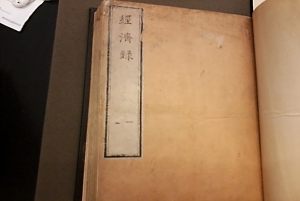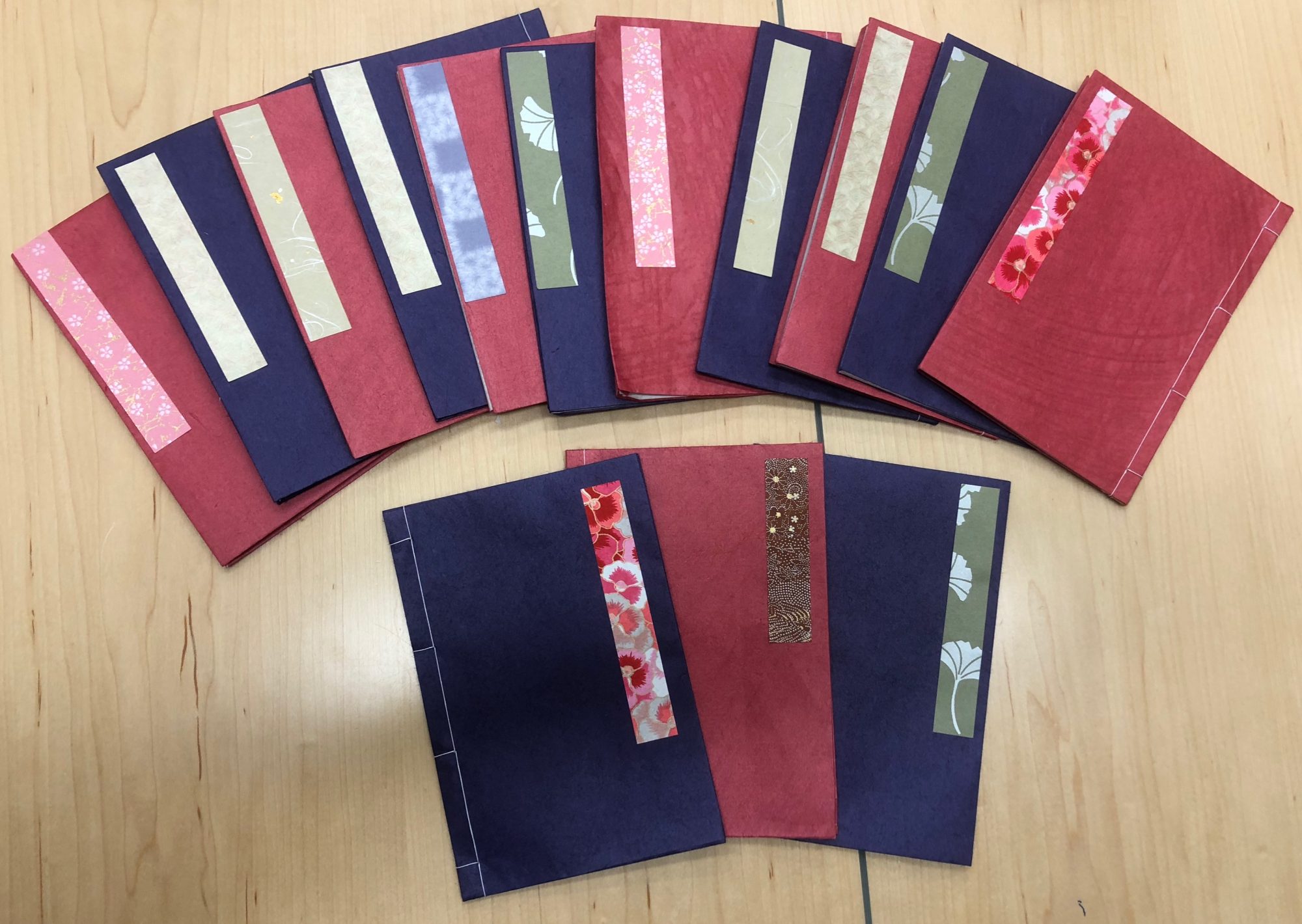Author: Dazai Shundai (太宰春台) (1680-1747)
Title: Keizairoku (経済錄) [On the Political Economy]
Date: 1729
Medium: Manuscript in black ink on paper; cloth covers
Donor: TBD, 1958; Red stamps at the beginning of each volume suggest that this work once belonged to the Matsuura Collection. [1]
Keizairoku is a politico-economic text by one Dazai Shundai. In it, the author advocates for a reformation of the feudal economy of the Tokugawa shogunate, which emphasized land ownership as the determinant of one’s wealth. Shundai, having observed the poor state of the contemporary economy, suggested greater emphasis be placed on commerce, including the utilization of currency, instead of on rice farming, which had historically been the emphasis of the feudal economy. [2] This was radical not only because it would be practically difficult to implement but also because it broke with traditional interpretations of classical Chinese politico-economic theory which regarded rice farming as a source of societal virtue. [3] He argued that doing that which would most benefit the nation, viz., investing in trade, would be more in line with the teachings of the Chinese ancients than adhering to ineffective and outdated systems. [4]
Concerning Shundai himself, he was a student of neo-Confucianism Ogyū Sorai who stressed the importance of the practical application of ancient Confucian thought rather than abstract adherence thereto. [5] His family was part of the samurai class, a fact that manifests as bias in his work, though he and his father both spent time as rōnin, i.e. samurai without a master. [6] He further explained his ideas for economic reform in Keizairoku shūi (経済録拾遺) around a decade later. [7]
Copies in other collections:
• An 1819 version is held in Yale University Library.
• Kan 1, bunsatsu 1 to 4 are at held in the National Diet Library of Japan.
• Another 1729 impression at the School of Oriental and African Studies at the University of London.
 Selected reading/bibliography
Selected reading/bibliography
• Najita, Tetsuo. “History and Nature in Eighteenth-century Tokugawa Thought.” In The Cambridge History of Japan, edited by John Whitney Hall, 596-659. Cambridge: Cambridge University Press, 1991. doi:10.1017/CHOL9780521223553.013.
• ———. “Political Economism in the Thought of Dazai Shundai (1680-1747).” The Journal of Asian Studies 31, no. 4 (1972): 821-39. doi:10.2307/2052103.
Posted by Joe LaSure
4/7/18
—————————
1. “Welcome to the Matsura Historical Museum,” Matsura Historical Museum, accessed April 10, 2018, http://www.matsura.or.jp/en/home-2/.
2. Tetsuo Najita, “Political Economism in the Thought of Dazai Shundai (1680-1747),” The Journal of Asian Studies 31, no. 4 (1972): 831-32, accessed April 1, 2018, doi:10.2307/2052103.
3. Tetsuo Najita, “History and Nature in Eighteenth-century Tokugawa Thought,” in The Cambridge History of Japan, ed. John Whitney Hall (Cambridge: Cambridge University Press, 1991), 610-11. doi:10.1017/CHOL9780521223553.013.
4. Ibid.
5. Najita, “Political,” 823.
6. Ibid., 822.
7. Ibid., 822; 830.
